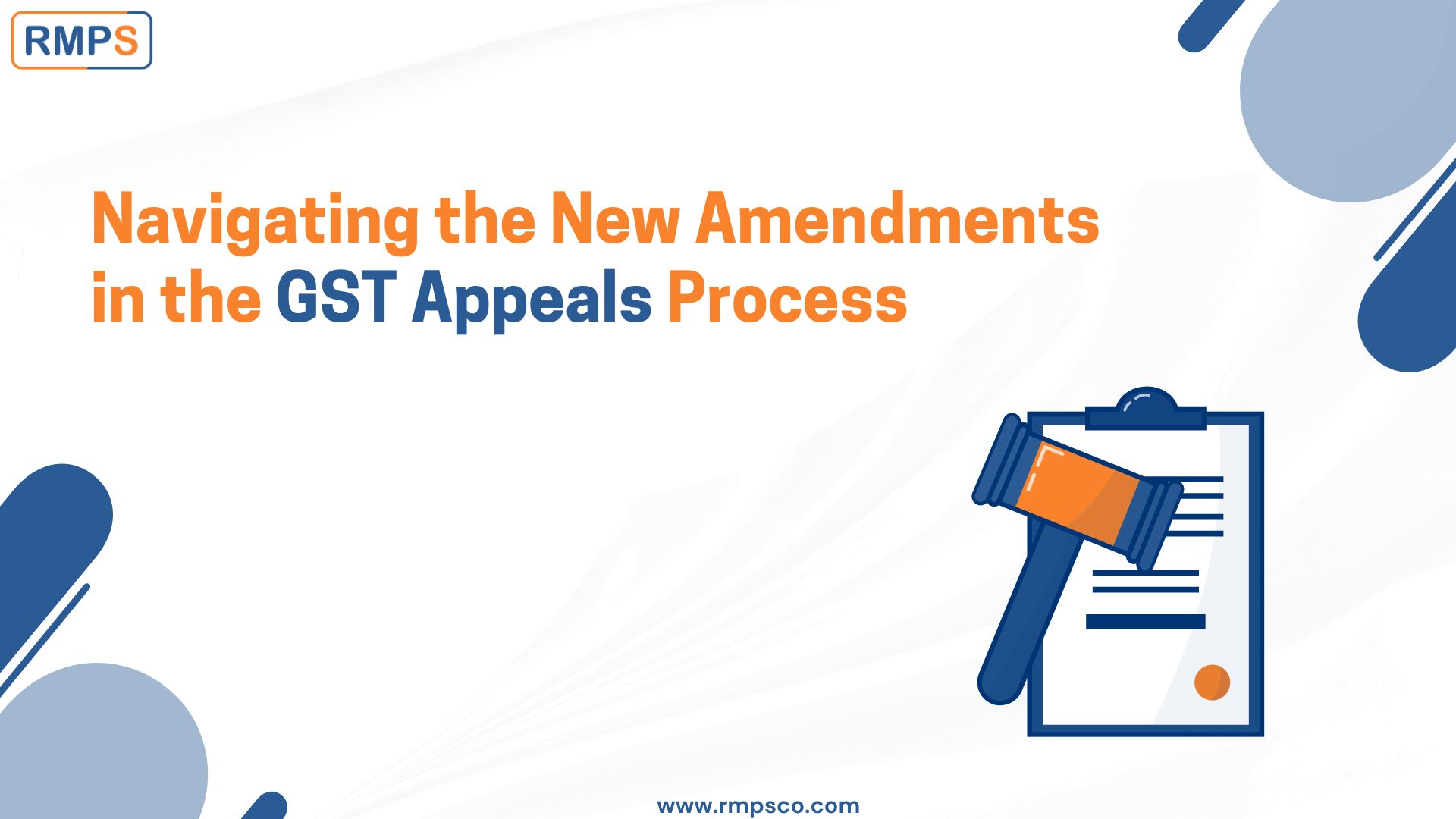
The Goods and Services Tax (GST) system in India is complex, requiring taxpayers to follow specific rules. The GST appeals process is a key part of this system, allowing taxpayers to challenge decisions made by GST authorities. Recently, GST Notification 12/2024 introduced important changes to this process. These changes impact Rules 110 and 111 and also introduce a new Rule 113A. Let’s break down what these updates mean for you.
What’s New in Rule 110: Appeal to the Appellate Tribunal?
Rule 110, which explains how to file an appeal to the GST Appellate Tribunal, has undergone significant changes. Here’s a summary:
- Electronic Filing: Now, you must file all appeals under Section 112(1) electronically using FORM GST APL-05. You need to submit all necessary documents with this form. Immediately after submission, you will receive a provisional acknowledgment, which serves as the official filing date.
- Manual Filing: Sometimes, electronic filing may not be possible. In such cases, the Registrar can allow you to file manually, ensuring that technical issues do not prevent you from filing your appeal.
- Cross-Objections: If you have cross-objections, you should file them electronically using FORM GST APL-06. Manual filing is an option if needed.
- Acknowledgment Process: After you correct any issues with your submission, you will receive a final acknowledgment in FORM GST APL-02, which includes your appeal number. The date on your provisional acknowledgment counts as the official filing date.
- Order Submission: If the order you’re appealing is not available on the common portal, you must submit a self-certified copy within seven days. The timing of this submission will affect the official filing date.
- Fee Structure: The fee to file an appeal is ₹1,000 for every ₹1 lakh of tax or input tax credit involved. The maximum fee is ₹25,000, and the minimum is ₹5,000. You do not need to pay a fee for applications related to correcting errors under Section 112(10).
Simplifying Applications with Rule 111
Rule 111 has also been updated to make filing applications to the Appellate Tribunal under Section 112(3) easier. These updates are similar to those in Rule 110:
- Electronic Filing: You must file applications electronically using FORM GST APL-07. Upon submission, you will immediately receive a provisional acknowledgment.
- Manual Filing: If electronic filing is not possible, the Registrar may allow manual submissions. The process for final acknowledgment is the same as in Rule 110.
- Cross-Objections: Like appeals, you should file cross-objections electronically. However, manual filing is allowed if necessary.
- Order Submission: If the related order is not on the portal, you must submit a self-certified copy within seven days. The date of this submission will determine the official filing date.
- Role of the Registrar: These changes highlight the importance of the Registrar, including officials like the Joint Registrar, Deputy Registrar, and Assistant Registrar, in ensuring a smooth process.
Introducing Rule 113A: Withdrawing Appeals or Applications
The new Rule 113A lets you withdraw appeals or applications at any time before the Tribunal issues an order under Section 113(1). Here’s how it works:
- Withdrawal Process: If you wish to withdraw, file an application in FORM GST APL-05/07W. If you have already received a final acknowledgment, the Tribunal must approve your withdrawal request.
- Decision Timeline: The Tribunal has fifteen days to decide on the withdrawal application, ensuring a swift resolution.
- Filing Fresh Appeals: If you withdraw an appeal, you can still file a new one within the time limits specified in Section 112(1) or 112(3). This ensures you don’t lose the right to challenge decisions.
Conclusion
The updates to Rules 110 and 111, along with the new Rule 113A, are designed to make the GST appeals process more efficient and transparent. These changes provide clear guidelines for electronic and manual filings, acknowledgment procedures, and withdrawing appeals. By understanding these updates, you can navigate the appeals process with greater confidence.
LinkedIn Link : RMPS Profile
This article is only a knowledge-sharing initiative and is based on the Relevant Provisions as applicable and as per the information existing at the time of the preparation. In no event, RMPS & Co. or the Author or any other persons be liable for any direct and indirect result from this Article or any inadvertent omission of the provisions, update, etc if any.
Published on: August 22, 2024
